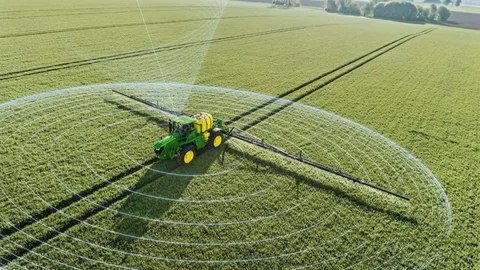Precision Agriculture and the Future of Food Security
As the global population continues to grow, ensuring a stable and sufficient food supply becomes an increasingly urgent challenge. Traditional farming methods are no longer enough to meet the demands of a rapidly changing world. This is where precision agriculture and the Future of Food Security intersect, offering innovative solutions to enhance productivity, sustainability, and resilience in agriculture.
What is Precision Agriculture?
Precision agriculture refers to the use of advanced technologies such as GPS, drones, sensors, and big data analytics to optimize field-level management regarding crop farming. By accurately monitoring and managing variables like soil conditions, moisture levels, and pest infestations, farmers can apply inputs—such as water, fertilizers, and pesticides—more efficiently.
This targeted approach not only reduces waste and environmental impact but also increases crop yields. Precision agriculture allows farmers to make informed decisions, resulting in healthier crops and higher productivity.
The Role of Precision Agriculture in Food Security
Food security is defined by the availability, access, and utilization of sufficient, safe, and nutritious food to meet the dietary needs of populations. Precision agriculture plays a pivotal role in this by increasing agricultural productivity and sustainability.
By leveraging technology, farmers can adapt to the challenges posed by climate change, soil degradation, and water scarcity. For example, sensor data can help detect drought stress early, enabling timely irrigation and preventing crop failure. Similarly, drones can monitor pest outbreaks, allowing for precise treatment that preserves beneficial insects and reduces chemical use.
Benefits for the Future of Food Security
The integration of precision agriculture techniques contributes significantly to the future of food security in multiple ways:
- Increased Efficiency: Precision agriculture maximizes resource use efficiency, lowering costs and environmental footprint.
- Enhanced Crop Yields: Better management of inputs and conditions leads to healthier plants and improved harvests.
- Climate Resilience: Advanced monitoring helps farmers anticipate and respond to extreme weather events, safeguarding food production.
- Sustainable Farming Practices: Reducing over-application of chemicals and water promotes long-term soil health.
Challenges and the Road Ahead
While the potential benefits are clear, adopting precision agriculture worldwide faces some hurdles. High initial investment costs, lack of infrastructure, and the need for technical knowledge can limit accessibility, especially in developing regions. Addressing these challenges through government support, education, and affordable technology is crucial to ensure that precision agriculture contributes meaningfully to global food security.
Conclusion
Precision agriculture represents a transformative approach to farming that aligns perfectly with the demands of modern food production. By harnessing technology to optimize every aspect of crop management, precision agriculture and the future of food security are closely linked. As innovation continues to evolve, this synergy promises a more sustainable, efficient, and resilient global food system capable of feeding the growing population for generations to come.


